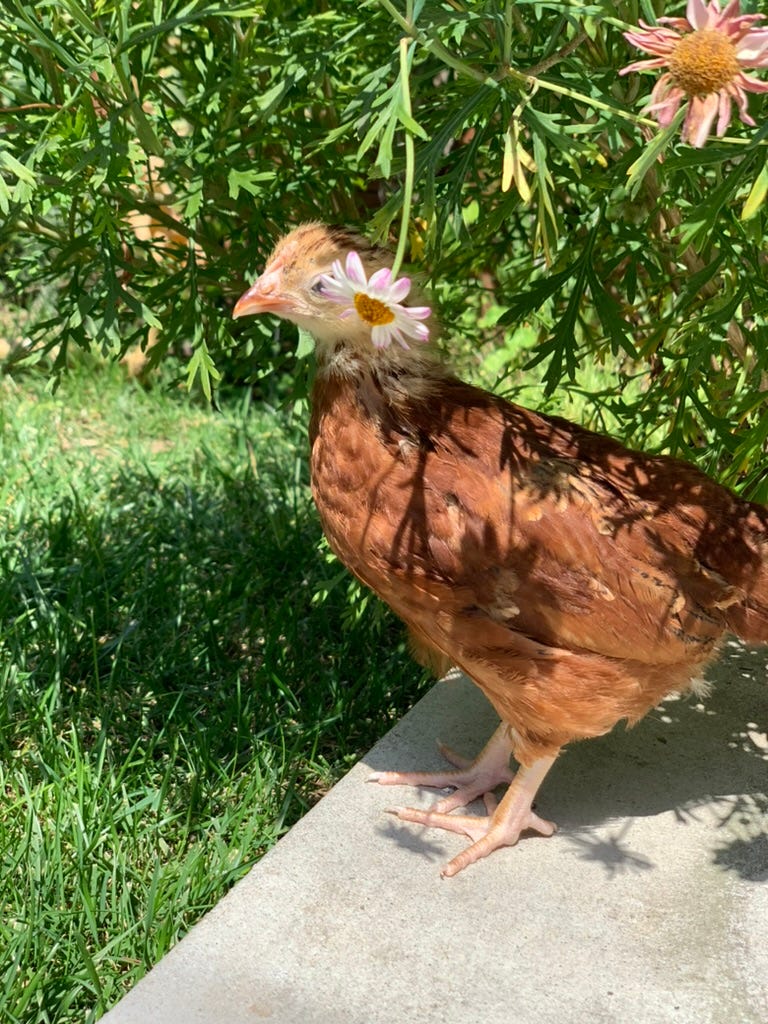Have you ever dreamed of fresh eggs from your own backyard flock? In today’s newsletter, I’m sharing everything you need to know about starting (and loving) your own flock. From choosing between day-old chicks vs. point-of-lay hens, to predator prevention, to traveling tips—this is a thorough rundown of how I care for my sweet ladies.
If you’re not already a paid subscriber, upgrade now to unlock this full chicken-keeping guide and get complete access to my entire garden archives—including the Indoor Seed Starting Workshop, Garden Reflections, and much more!
In today’s post we’ll cover:
My Personal Experience with Backyard Chickens
Timing & Purchasing: Chicks vs. Started Pullets vs. Point-of-Lay Hens
Day-to-Day Routine
Beginner-Friendly Breeds
Hygiene Tips (Including my Pregnancy Considerations)
Predator Prevention
Rules & Regulations
Health Concerns & Avian Flu Precautions
Cost Rundown
Seasonal Care (Heat, Cold, Rain, and Snow)
Traveling with Chickens
Diet & Feeding
Introducing New Chickens
Egg Color & Cleanliness
Chicken Lifespan & Egg Production
Final Q&A
My Personal Experience with Backyard Chickens
I’ve been keeping laying hens for five years—no roosters, no meat birds, just a happy flock of egg-laying ladies. Not only do they provide me with a fresh supply of eggs, they are my gardening companions. They are also terrific composting machines; they break down nearly all my garden waste and kitchen scraps. Hens also have their own unique personalities and I’ve grown to see them as part of our family. While a rooster can be helpful for flock protection or breeding, you don’t need one for fresh eggs. This is especially important if you live in an urban area where roosters are often banned (and can be noisy).
Timing & Purchasing: Chicks vs. Started Pullets vs. Point-of-Lay Hens
When you purchase chickens, you can typically buy them at different life stages. There are pros and cons to each and I’ve personally done them all.
Chicks (Day-Olds)
Pros: Inexpensive, fun to watch them grow, and very social if raised by hand.
Cons: Require a brooder, heat lamp, and more hands-on care. Takes about 5–6 months before you see eggs. There can also be sexing errors by hatcheries—so you might end up with an unexpected rooster that you may have to cull.
Started Pullets (Teenagers)






